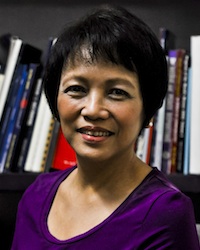SUMMARY
This is AI generated summarization, which may have errors. For context, always refer to the full article.
 If the multi-billion pork-barrel fraud happened in Jakarta, we’d be celebrating the imprisonment of the senators, congressmen and their accomplices in the government agencies in no time soon.
If the multi-billion pork-barrel fraud happened in Jakarta, we’d be celebrating the imprisonment of the senators, congressmen and their accomplices in the government agencies in no time soon.
Here’s the timetable of our neighbor, once known as the most corrupt country in Southeast Asia: 14 days after the investigation is completed, complaints are sent to the special anti-graft court. Then, give or take 90 days—which is the maximum period—the court decides on the cases.
That’s how the Corruption Eradication Commission in Indonesia works, better known as KPK (pronounced ka-pe-ka which stands for Komisi Pemberantan Korupsi).
They’re like our Ombudsman, but with much fiercer powers. They’ve sent members of parliament to jail. Their track record is amazing: 100% conviction rate.
Here, that remains a distant dream. They’ve left us behind!
Honestly, I envy KPK’s successes. If we could transplant the KPK to the Philippines, we will see a happy ending to our mega-corruption woes.
It is a model we can follow. But this would mean amending the law that created the Ombudsman and restructuring its Office. I’m not sure if Congress will do this. I can already imagine the loud and noisy opposition. It would be like putting hammers to their heads.
But this is the time to pass laws to strengthen the Office of the Ombudsman. We’ve reached the lowest point in President Aquino’s 3-year reign, with institutions tarnished and confidence in government eroding. Public support for strong anti-corruption measures is swelling.
Indonesia was able to form the KPK at a time when corruption in their country reached extraordinary levels and was so embedded in their system. They had no choice but to fight back—and with vengeance.
Seize assets, wiretap
KPK created buzz in the anti-corruption circles in Southeast Asia. Their powers include surveillance and wiretapping, examining of bank accounts and tax records, freezing of suspects’ assets, issuance of hold orders and making arrests.
Here, we need a court order to do any of these. The most recent example is our Court of Appeals’ order to freeze the bank accounts of pork barrel queen Janet Napoles and for the Anti-Money Laundering Council to go over these accounts for 6 months.
But none of Napoles’ assets have been seized or frozen. Same with the lawmakers who received the biggest kickbacks.
Another difference is that KPK focuses on high-profile targets. They select their cases for maximum impact.
The KPK can prosecute any official, including members of parliament and the judiciary. The only exception is the military, which the KPK can investigate but not prosecute.
Our Ombudsman can prosecute the military and members of the executive branch, except those removable by impeachment. Members of Congress and the judiciary are covered but only for criminal complaints.
We’ve also had our share of successes here. The current Ombudsman, Conchita Carpio-Morales, broke new ground in the fight against corruption when she used her office’s power to verify information in the asset statements of public officials, to gather information on the former chief justice’s bank accounts. Her office found out that the chief justice did not declare his bank deposits. This proved to be crucial evidence in the impeachment of Renato Corona.
Comparison
In 2010, an academic, Emil Bolongaita, studied the KPK and the Office of the Ombudsman and compared their performance. Both of our countries are democracies; we’re both emerging economies.
Read the study here.
Bolongaita pointed out that, among other factors, it is the powers of the KPK, the high-level political support and wide public backing that helped KPK maintain its independence and will to fight powerful enemies.
In the Philippines, the Ombudsman had a brief shining moment in the early years of President Arroyo, when Simeon Marcelo was Ombudsman. He started reforming the institution, recruited young and idealistic lawyers, opened up his office to civil-society partners, and increased conviction rate. But he resigned after only a few years in office.
When the leadership changed, the reform programs stopped. This was also during the period that the Arroyo administration was embroiled in corruption scandals.
Today, under President Aquino, confidence in the Office of the Ombudsman is back and the current Ombudsman is continuing the reforms. She has the full support of the President, who has made the fight versus corruption his centrepiece program.
The Ombudsman is leading the probe on the pork barrel scam. Expectations are high that she will act without fear or favor and charge the guilty senators and congressmen.
We have a lot to learn from the experience of the KPK. It is admirable that they were able to hurdle the framing up of some of their officials—and they don’t wear bullet-proof vests.
Exchange visits and sharing seminars between Manila’s Ombudsman and Jakarta’s KPK may be useful, although it may be frustrating for those at the Ombudsman’s Office since they do not enjoy the vast powers KPK has.
Still, we will continue to watch the activities and successes of KPK with interest. We hope that KPK will be able to sustain its “smart and empowered” anti-corruption crusade and that the forces working against it will fail. – Rappler.com
Add a comment
How does this make you feel?
There are no comments yet. Add your comment to start the conversation.